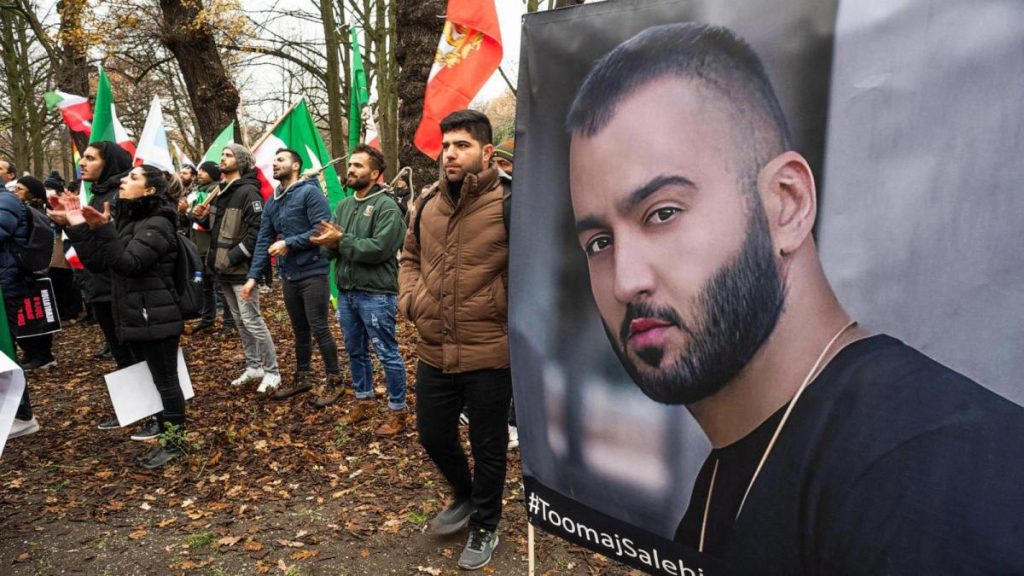Iranian rapper Toomaj Salehi has been sentenced to death by an Iranian court for his songs criticizing the government, according to his lawyer Amir Raesian. Salehi, who has been arrested multiple times for his outspoken criticism of the regime, is known for calling out corruption and suppression of dissent in his music. The court’s decision contradicted a ruling by the Iranian Supreme Court that said Salehi’s case qualified for amnesty, highlighting legal conflicts in the revolutionary court’s decision. Raesian stated that they will appeal the sentence, emphasizing the need for justice in Salehi’s case.
Salehi’s music often tackles issues of government corruption and the suppression of dissent, making him a target for the Iranian regime. In one of his popular songs, “The Mouse Hole,” Salehi warns collaborators with the regime that they will face consequences for their actions. Despite being previously arrested for his music, Salehi continued to release songs expressing his opposition to the regime. He also voiced support for protests in Iran following the death of 22-year-old Mahsa Amini in police custody, highlighting the ongoing tensions between artists and the government in Iran.
The use of rap music as a vehicle for criticism of the regime has put several artists in the crosshairs of the Iranian government. Despite the crackdown on dissent, news of Salehi’s sentence drew support from the Iranian music community. Pop singer Mehdi Yarrahi described the sentence as a “black comedy” and called for Salehi’s unconditional release. Yarrahi himself had been arrested for his songs in support of the Mahsa Amini protests. Many Iranians joined in demanding Salehi’s freedom, reflecting the widespread support for the rapper within the music industry.
The sentencing of Salehi to death highlights the ongoing challenges faced by artists who speak out against the Iranian regime. The case also underscores the broader issues of censorship and suppression of free expression in Iran. Salehi’s lawyer’s intention to appeal the sentence suggests a continued effort to seek justice in the face of legal conflicts and political pressures. The support from the Iranian music community further demonstrates the solidarity and resistance against government crackdowns on artistic expression.
The case of Toomaj Salehi serves as a reminder of the risks faced by artists who challenge authoritarian regimes through their work. Salehi’s dedication to using his music as a platform for dissent has earned him admiration and support from his fellow musicians and activists. Despite the threat of death, Salehi’s defiance and resilience continue to inspire others to speak out against injustice and censorship. The international community has a role to play in advocating for artists like Salehi and ensuring that their fundamental rights to free expression are respected and protected.


